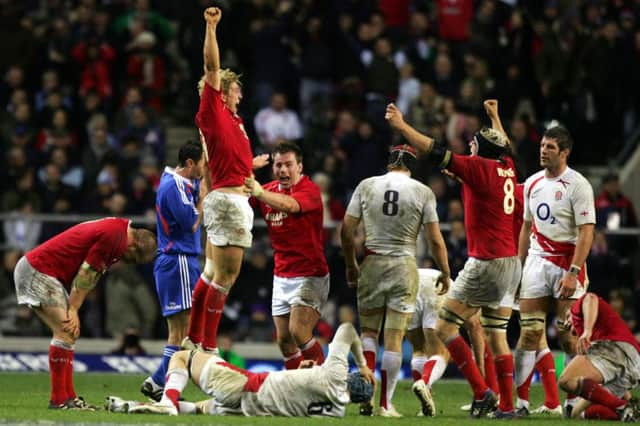Allan Massie: Rivals need to learn 80-minute game


Neither England nor Wales are where they would wish to be. The Welsh run of defeats at the hands of the southern hemisphere Big Three was extended last Saturday when in a mere 11 minutes they allowed a 16-15 lead over the All Blacks to be converted into a 16-34 defeat. As for the Red Rose brigade, they achieved a stuttering win against Samoa without suggesting that they had eradicated the sloppiness which had marked their games against New Zealand and South Africa.
The Welsh defeat was shattering. For much of the match they played perhaps as well as they can and the All Blacks as badly as they can; and yet they lost. The suggestion that the Welsh played as well as they can, especially in their aggressive defence, should be qualified. They played as well as they can in the limited style in which their coaches have them playing; that is to say, biffing up the middle time and again in the hope something good will happen. The ball scarcely ever reached their two big, fast, try-scoring wings, George North and Alex Cuthbert, and when Cuthbert did get a chance in space, the pass to him was forward. When Wales play lesser nations – like us, alas – Warren Gatland is willing to let his players off the leash. But when they are up against the best, they revert to bang-bang safety-first rugby; and lose.
Advertisement
Hide AdAdvertisement
Hide AdPerhaps, against South Africa today, he may decide, after 27 defeats, that it’s time to try something different, such as more than one-pass rugby. As I say, they had a real chance last week because for the first-half the All Blacks looked weary and out of sorts. They made even more handling errors than their supposedly second-choice backs did against Scotland. Good passes were dropped, bad passes slung out way behind the intended recipient. Sonny Bill Williams in the centre had a dreadful match. But then of course the All Blacks pulled themselves together.
The Welsh may moan about the wicked bounce of the ball that took Beauden Barrett’s chip kick away from Leigh Halfpenny and back into Barrett’s hands, but even if the bounce had gone the other way New Zealand would still have been in an attacking position. Then came Keiran Read’s charge-down of Mike Phillips’s attempted box-kick. Phillips needs protection from a forward when box-kicking because he takes so long to wind up; and there was no protection. Result: a try made by Read’s alertness and Welsh inadequacy.
Final lesson for Wales to learn: rugby matches last 80 minutes, not 69. Nobody needs to teach the All Blacks that. So they win matches they seem likely to lose.
England haven’t been playing 80-minute rugby either. They have enjoyed spells of dominance against New Zealand and South Africa, only to lose concentration, focus and drive; and consequently the match. It may be that all the premature talk about the World Cup is preying on players’ minds. It’s still almost a year away and they would do well to concentrate on the present. The same goes for their coaching team, too. The best way to prepare for the future is to develop the habit of winning now.
They’ve had important players missing on account of injury, of course, but so has everyone else. The All Blacks won the southern Rugby Championship without Dan Carter, and didn’t moan about his absence. Ireland won their autumn internationals without Sean O’Brien and Cian Healy. England have suffered from inconsistent selection. Danny Care started the month as their first-choice scrum-half. Now he is out of the match-day squad. Against Samoa, they brought in George Ford at 10 and shifted Owen Farrell to 12. This didn’t work badly, and I’ve always thought that inside centre might be Farrell’s better position. But after one match the experiment has been shelved, Farrell relegated to the bench and replaced by Billy Twelvetrees.
It’s always tempting for English selectors to respond to defeat by tinkering, because they have so many players capable of playing international rugby. But consistency of selection nearly always beats tinkering.
South Africa, coming to the end of their long season, struggled to beat Italy last week, won unconvincingly at Twickenham, having lost earlier to Ireland. So Wales must have a good chance of at last recording that elusive victory over one of the Big Three. If they don’t, pressure on Warren Gatland will become intense. England at Twickenham should beat Australia, and do so by taking command up front. Yet Australia might well snatch a win.
The once famous French flair may, sadly, be a thing of the past, but the Wallabies have flair like nobody else today. They score tries from any part of the field and their captain Michael Hooper at 7 wins more turnovers than even Richie McCaw does these days, often even legally.